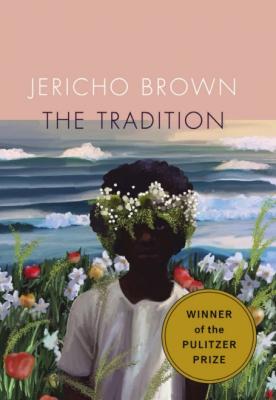Pulitzer Prize Winner

Jericho Brown shares his past and his passion through poetry and words

He has a big smile, a ready laugh, and is handsome and muscular. He is Jericho Brown, a poet. Full-time poet.
Brown, director of the creative writing program and teacher at Emory University, Atlanta, has won the 2020 Pulitzer Prize in Poetry.
He grew up in Cedar Grove, Shreveport. He graduated from C.E. Byrd High School and Dillard University, New Orleans, as well as the University of New Orleans (MFA in creative writing).
He can be consumed without quibble by all manner of readers because he has pinged the highest American bells. Brown has been published by the NY Times, winner of a Guggenheim Fellowship, the American Book Award (for “Please,” his first of three books), a Ph.D. from the University of Houston, and a professorship at the highlyregarded Emory University.
The quickest way to enjoy his work is to go to YouTube to Brown’s pre-Pulitzer 2015 TEDx talk, “The art of words.” He greets with, “Where I am from, we always begin with a prayer.” But he blesses the audience with the unexpected: a Prayer of the Backhand. We follow in slo-mo the arc of the back of the slamming fist. We learn what it’s like to be backhanded by your father when you are young. Brown is shocked and pained by the smack. Still, he enables us to see that the act is complicated.
Says writer Ashley Havird (“Lightningstruck,” a novel, 2016, “Garden of the Fugitives,” poetry, 2014): “Centenary College has brought Jericho Brown to Shreveport twice recently. In 2016, when he read from his collection, ‘The New Testament,’ and in 2019, when he was named the 30th recipient of the John William Corrington Award for Literary Excellence, where he read from his to-be-Pulitzer Prizewinning collection, ‘The Tradition.’ Both visits drew a packed house.”
Lest the reader thinks Brown is an ivory tower type, let us have a taste of his poem, “Bullet Points.”
I will not shoot myself
In the head, and I will not shoot myself
In the back,
and I will not hang myself
With a trashbag, and if I do, I promise you, I
will not do it
In a police car while handcuffed
Or in the jail cell of a town
I only know the name of
Because I have to drive through it
To get home.
See the remainder of “Bullet Points” at one of several sites online or in “The Tradition.”
Says poet Katie Bickham, lecturer in English at Centenary, “Combining narrative, persona and lyric poetry, Brown weaves through his collection, “The New Testament,” a simultaneously biographical and political crying out for a new way of looking at the world. His poems are welcoming and challenging, familiar and surprising. This is everything we want from a good read.”
Brown explained to the “Emory Wheel” that the shooting and death of 12-year-old Tamir Rice in 2014 and “the images of unarmed people being murdered by the police for no reason,” influenced him in creating the work.
He aims to continue pushing the boundaries around him, he told “The Wheel,” using poetry to convey the limitless possibilities available once an individual sets a goal. Brown cited former President Barack Obama as an example: “As America’s first black president, many black individuals did not fathom the possibility until it happened.” He believes that “people that are our biggest role models who really made a difference are not just talented people; they’re also people who thought about doing what had been done before in a brand new way.”
Interviewed by the British publication, the Guardian Weekly, he said, “I grew up in a religious family – it was a requirement that we knew the scriptures. In 2010, I became very ill with HIV. I had not, for a while, thought about the relationship I had with God. I had spent so much time, as a child, talking with God and felt he was speaking to me. When I got sick, I wondered what he would say about this devastating thing. I wondered if God could comfort me in the ways I had once been taught to comfort myself. The Bible became the mythology around which I could create: The sound of scriptures came through my ear and into the poetry.”
Asked by Guardian interviewer Kate Kellaway, “Was it difficult to continue the conversation with God when, in many religious circles, if you are gay, you are treated as a pariah?” He responded, “I go to a church that is not based on fear of people. I’m not interested in any philosophy that needs inferior people for its worshippers to feel superior. Evangelical Christianity remains violently homophobic. There are religious people who do not understand why you are alive if you are gay.”
What has teaching creative writing taught you?
“How to break rules. Whenever I lay down a maxim to students, it makes them want to overcome it. Poetry is about surprise. Every time you write a line, you want to subvert it … When I’m writing, I think of myself when I was 19 and younger. That’s the person I think of as audience.”
Pulitzer Prize winner Jericho Brown is a C.E. Byrd High School graduate.
